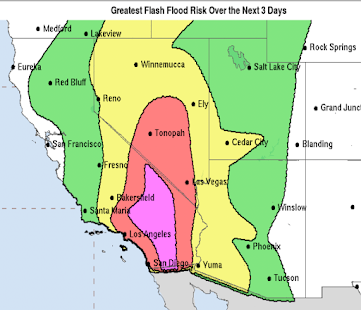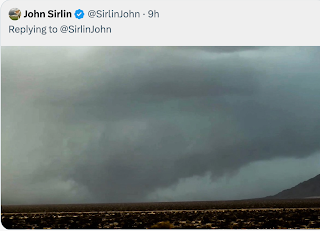A Paragraph of Misunderstandings
The New York Times has an interview with academic and author Naomi Oreskes pertaining to global warming. Most of the article is what you would expect. But, one paragraph caught my eye:
How does the free market prevent acid rain or climate change? It doesn’t. How do we know about the potential harm to individuals or the environment? Because of science. And how does one prevent harm? With regulation. To prevent regulation, we’ve had this campaign of doubt-mongering about science and scientists.
This is the predictable thinking of someone who has spent her entire life in the fields of academia and policy. On top of a prominent U.S. politician saying several days ago, "Don't let anyone tell you businesses and corporations create jobs," it is worth spending a few moments discussing the above line of thought.
Let's consider line-by-line:
How does the free market prevent acid rain or climate change? It doesn’t. How do we know about the potential harm to individuals or the environment? Because of science. And how does one prevent harm? With regulation. To prevent regulation, we’ve had this campaign of doubt-mongering about science and scientists.
This is the predictable thinking of someone who has spent her entire life in the fields of academia and policy. On top of a prominent U.S. politician saying several days ago, "Don't let anyone tell you businesses and corporations create jobs," it is worth spending a few moments discussing the above line of thought.
Let's consider line-by-line:
- How does the free market prevent acid rain or climate change? It doesn’t.
The U.S. is the only nation that met its Kyoto target -- even though we didn't ratify Kyoto -- for decreasing carbon dioxide production. How? Via the increased use of inexpensive natural gas brought to us by fracking. Natural gas not only produces less carbon dioxide (per unit of energy) it also reduces, you guessed it, acid rain. Ms. Oreskes would undoubtedly agree less acid and rain and less CO2 to be good things and they were entirely brought by the free market. If anything, the federal government has been a (net) obstacle to producing more U.S. energy. Last week, Lockheed said it had made a major breakthrough in producing energy from fusion. If confirmed, that means cheap, nearly limitless, carbon-free energy! So, yes, free enterprise is our best hope of solving a myriad of societal problems.
- How do we know about the potential harm to individuals or the environment? Because of science.
True. And, I'm proud to be an atmospheric scientist. However, a number of global warming scientists have overstated the harm/urgency of warming due to adding small (compared to what nature adds) amounts of CO2 to the atmosphere. As we have discussed on numerous occasions, global warming is a problem but it is manageable as environmental problems go. These individuals (I call them the "climate cult") do tremendous harm to the credibility of science.
- And how does one prevent harm? With regulation.
As is far too often the case with people who have spent their entire careers in academia, they have no idea of the cost of regulation to the economy, a topic we covered at length last week. Plus, we have zero (yes, literally zero) understanding of the unintended consequences of regulations intended to change future weather.
- To prevent regulation, we’ve had this campaign of doubt-mongering about science and scientists.
What campaign? The individuals like myself, Anthony Watts, and Judy Curry (to name three) urging caution are like a few grains of sand on a beach compared to the now $100,000,000,000+ that has been spent (worldwide) on global warming, including spending our tax money on how best to convince the public global warming is an imminent, major problem. The global warming cult wants to believe there is a vast conspiracy because they don't realize all of the exaggeration has indeed hurt their credibility.
The only way we "lukewarmers" have gotten any traction is that many in the public seem to instinctively sense they are being conned by the cult. Here is another example: Many instinctively knew the government's initial reaction to Ebola in the U.S. was inadequate (even if they didn't know the specifics) and, now, even the CDC has conceded its initial efforts were insufficient. The person on the street is a lot smarter than most academics realize.




Comments
Post a Comment